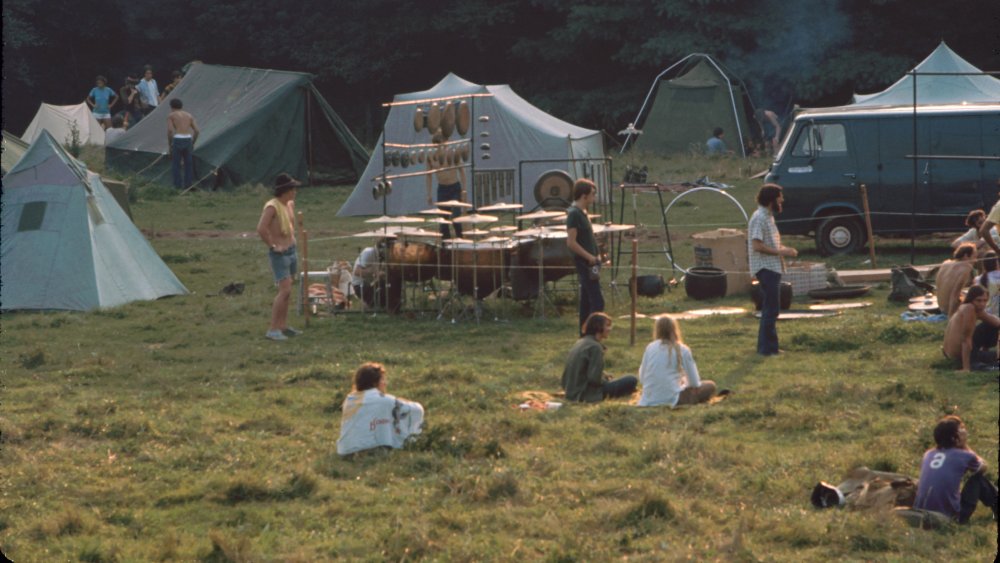The Reason Woodstock Was A Financial Disaster For Its Organizers
On August 19, 1969, the members of Woodstock Ventures woke up, presumably hungover. With the soon-to-become-legendary Woodstock music festival completed the day prior, now was time to calculate the losses. And there were a lot.
First came the rent for the land. A Time profile of Max Yasgur, the man who owned the festival's location, says that he was paid $75,000 for use of 600 acres, though the piece notes that reports vary. Second, the performers required compensation. According to Priceonomics, Jimi Hendrix earned the most — $18,000, which they calculate to be worth $114,000 in 2015 American dollars. Other acts, like Iron Butterfly, could expect a payment closer to $10,000 — except that Iron Butterfly apparently was never paid. The lowest fee, Santana's, only cost Woodstock Ventures $750. When all the acts are taken together, the costs build dramatically, with a Rolling Stone article written in October 1969 stating that the total performer compensation reached $300,000, or several million in today's money.
The Rolling Stone piece also mentions unexpected costs: emergency food; paying for the buses to ferry everyone and everything between the farm and the nearby town of Bethel. By the end, Woodstock Ventures, which was funded by the personal fortune of John P. Roberts, heir to the dental adhesive empire Polydent, cost $1.3 million. This, according to a US Inflation Calculator, would be worth $9,177,964.58 in 2020 dollar bills.
Profits
So, after Woodstock Ventures reached this sum through somewhat bleary eyes, they turned their attention to their profits. Currently, there were none. Originally, they would charge tickets for Woodstock, either $6 for a day or $18 for the whole festival. Louder Sounds writes that the festival ended up as a free experience due to its demand and the incompetence of the organizers: "In the chaos leading up to the festival, the promoters failed to employ enough ticket takers, so the kids eventually just tore down fences and poured in for free. The resultant overflow of flower-power turned the field into a disaster area and caused financial ruin for the promoters." So, the Polydent scion faced debtor's prison for causing the indebtedness of an entire generation.
But as the Rolling Stone piece also reported, there was a possible salvation. By Christmas that year, they intended to release the Woodstock Documentary. The gamble paid off. The widespread acclaim the film received is captured in Roger Ebert's rave review: "'Woodstock' is a beautiful, complete, moving, ultimately great film, and years from now when our generation is attacked for being just as uptight as all the rest of the generations, it will be good to have this movie around to show that, just for a weekend anyway, that wasn't altogether the case." According to WorldwideBoxOffice.com, the film grossed $50,000,000, easily paying off the debts for all involved. The production nightmare that defined Woodstock now lingers as a financed legendary dream.

